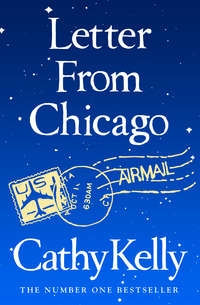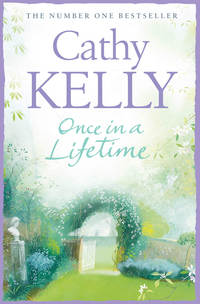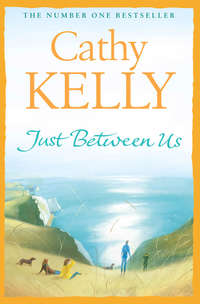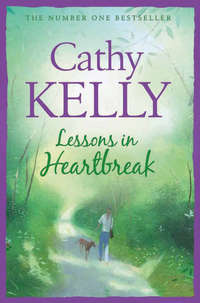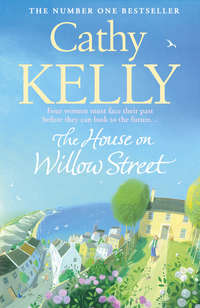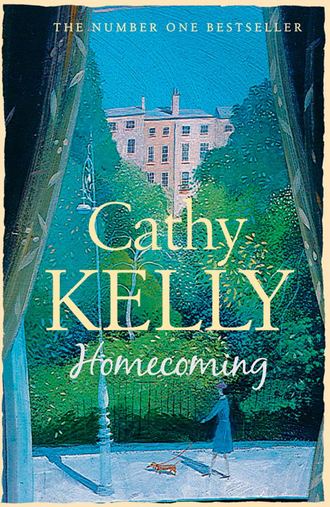
Полная версия
Homecoming
Along the way, she’d got married, had her beloved son Anton, and she’d traded her career in human resources for something a little different. Despite what she’d thought all those years ago, everything had worked out. Well, nearly everything.
She’d once read a spiritual saying that encapsulated her early life: for your heart to open, it first has to break. Rae’s heart had certainly been broken, but she’d recovered, more or less.
The girl who’d prompted the memories reached the corner and was gone from sight. Rae hoped, for the girl’s sake, that she’d had an easier life than Rae had by the same age. She wouldn’t wish that on anyone.
She took a sip of her steaming tea. The sun was low in the sky and the light shone through the two sycamore trees outside the balcony, creating a soft acid green light on the front of her house. She loved to get a little fresh air in the evening. Just for a moment in the cooler weather, and longer in summer. Her favourite place was sitting on the tiny first-storey balcony on her narrow white house, with Golden Square spread beneath her, music coming from the open French doors behind her and a cup of tea in her hand.
The balcony was too small for any actual furniture. In fact, it wasn’t really a balcony, just a ledge off the master bedroom. But it was a glorious place to lean against the iron railings and think about the day.
Evening was muted. As if people’s voices were less harsh, cars moved more slowly along the streets and even the dogs barked in a more lazy manner. The closing down of the day, time to relax. Certain times of day should be bottled, she decided. A late afternoon like this one would be very therapeutic: in times of stress, take two sips of Quiet January Twilight, a drop of New Year’s Eve Excitement, and a large spoonful of Winter Dawn.
Pity it wasn’t that easy.
They were lucky, living in Golden Square. The houses surrounding the gardens were mainly beautiful old redbricks, with narrow three-storeys like Will and Rae’s, a couple of cottages and a line of 1930s villas thrown in, with one apartment block.
On one side of the square there was a swathe of local shops including a proper butcher’s and The Nook, which sold everything from aspirin to apples. There was a dry cleaner’s, a small restaurant that changed hands every year like clockwork, and the Old Claddagh Bar, the local pub, which still did a roaring trade in processed cheese sandwiches on factory sliced white bread.
Every year, the latest owners of the restaurant walked into the Old Claddagh, sniffed at the sight of the sandwiches and the tomato-shaped plastic ketchup container, and walked out happily, convinced that the local pub wasn’t much competition. They’d bring ciabatta and miso soup to the area, they thought, and nobody would go near the pub for lunch ever again. By the end of the year they’d be leaving with their tails between their legs as it transpired the locals liked processed cheese sandwiches with their pints at lunchtime and found ciabatta bread very hard and dry.
Nestled between The Nook convenience store and the Old Claddagh Bar was the only other eatery to have survived the restaurant curse of Golden Square: Titania’s Palace Tearooms, which Rae had managed for the past fifteen years. She could see it from her little balcony: a double-windowed shop painted a rich olive green with the name in cursive lettering in gold over the shop, and an old-fashioned cast-iron sign sticking out over the door: Titania’s Palace Tearooms.
The tearooms were still going strong, as Rae and Timothy, the owner, had long ago realised that keeping it simple and cosy worked. People could go into Titania’s Palace and sit quietly reading the day’s newspapers with nobody talking to them, if they wished, or they could enjoy warm company. They could eat cupcakes smothered in pink icing or low-cal bran muffins. Rae’s management theory was that once a customer experienced the welcome of Titania’s Palace they wouldn’t be able to resist coming again.
Rae loved the tearooms.
‘It’s peaceful,’ she told Will.
‘It’s noisy as hell when I go in there,’ he teased her gently.
‘But it’s nice noise, enjoyable noise,’ she pointed out.
And it was. The noise was of people enjoying themselves, talking, chattering, laughing, waving hello to so and so, all in the comforting atmosphere of the place. Her son Anton liked to say there was an invisible forcefield around the place, and once you entered, you were stuck in Kindland.
‘You have got to stop watching so much Star Trek,’ his father joked. ‘You’ll be learning Klingon next.’
On the drive of the house beside Rae’s, she could see her neighbour, Claire, coming in with a bag of shopping. Claire was wearing her pink velvet coat with the fluffy fake fur collar. She’d been wearing that coat for twenty years now. Rae could remember when Claire had acquired it. The coat had created quite a scandal among some members of the residents’ association, especially Prudence Maguire, who was hideously jealous of Claire’s bleached-blonde glamour and ease with her own sexuality.
Ironically, it was Prudence – who’d loudly prophesied juvenile delinquency and immoral lapses in everyone else – who was practically estranged from her family. Claire and Evan’s kids had grown into kind, caring people who appeared to have achieved happy lives. When Claire’s daughter, Rachel, turned up in the square with her family, car windows open and music blaring, the children piled out, laughing and giggling, dying to see their grandparents.
Rae’s eyrie and the sanctuary of the tearoom window meant she could see Prudence’s house a lot of the time. No laughing carloads of grandchildren ever pulled up there. Rae pitied her neighbour, even if she didn’t like her very much.
Prudence reminded Rae a little of her own mother-in-law, Geraldine Kerrigan. They were both judgemental and determined to see the negative side in any situation. The only difference was that Rae didn’t have to spend time with Prudence but Geraldine was coming for lunch on Sunday. Rae normally loved the slowness of Sunday, but not when Geraldine was coming, an event which happened with increasing regularity as Geraldine grew older.
And nothing, nothing would be done the way Geraldine liked it. The table would be too fussily decorated or else Geraldine might remark that Rae must have been too busy to set things properly. The roast would be overdone or too bloody in the centre. The vegetables would be wrong for a person with such a sensitive stomach, or else carrot puree was suitable only for people with no teeth, surely?
Still, Geraldine had done one wonderful thing in her life, which was giving birth to Rae’s husband Will. Meeting Will had been one of the blessings of Rae’s life: her son, Anton, had been the other one. He was grown up now, in London working full time for the political magazine he’d gone to on a placement during his politics degree. Sometimes the old white house seemed empty without him, with no head stuck in the fridge roaring, ‘What can I eat, Mum?’ and no noisy footsteps running up and down the stairs at odd hours, yelling, ‘I’ll call when I want to be collected.’
His absence had partly been filled by Rae doing more volunteer work for Community Cares, a local charity that some people described as the second social welfare system. They helped people when there was nobody else, offering financial aid and friendship.
Her tea was nearly cold now. She’d spent too long standing on the balcony thinking. Rae finished it off, went inside her bedroom and closed the balcony doors tightly. She loved their bedroom. It was like a warm cocoon, with wallpaper the colour of honey, a quilted yellow silk eiderdown and old gold picture frames on the walls with black-and-white photos of their family over the years. On Rae’s side of the bed were piles of books waiting to be read: on Will’s side was a photo of Rae and his single book – he didn’t read in the same crazy, haphazard way she did, with three books on the go at all times.
Each time she looked at this lovely warm room, Rae thought how lucky she was. Unlike most people, she got to see just how lucky she was every single day.
When people asked her why she worked as a volunteer for Community Cares along with running the tearooms, she rarely replied truthfully. Rae knew that the people who asked in such astonishment wouldn’t have understood the true answer.
‘But why? Why would you want to go into horrible council flats like Delaney and see all those drug addicts?’
‘It’s rewarding,’ she would say simply and change the conversation. She’d long ago learned that it was impossible to change people’s firmly set views on poverty and deprivation. Geraldine, her mother-in-law, was one such person. In all the time Rae had been working for Community Cares, Geraldine had never once said a nice thing about either the work or the people being helped.
‘I suppose somebody has to do it,’ was as much as she could bring herself to say.
Geraldine prided herself on her family’s standing in society. Being involved with the dregs of society didn’t make the slightest sense to her. Surely people would want to distance themselves from poverty?
To the other sort of people who asked Rae why she worked with the charity – the ones who seemed to understand and who recognised that it could be hard to be exposed to other people’s pain every day – Rae told half the truth:
‘Helping people gives me peace.’
She didn’t say that she’d had first-hand experience of the strife that came from poverty and deprivation. Though Rae had been married to Will Kerrigan for twenty-five years and had lived in the comfort of Golden Square all that time, in her mind’s eye, she was only a few steps away from the Hennessey girl who had grown up in a run-down bungalow on the outskirts of Limerick city.
Ironically, she didn’t remember Community Cares coming to her household to help, but then, her parents would probably have yelled at the volunteers and called them ‘dogooders!’ They were touchy about anyone they thought might be looking down on them.
Set up in the 1930s to help the poor, over the decades Community Cares had grown to a country-wide organisation with branches in every town. It wasn’t religious, just humanist. Nobody was ever turned away.
Rae and her CC partner, Dulcie, normally made calls on Tuesday evenings and Wednesday afternoons, like today. Theirs was a perfect working relationship as Dulcie was different from Rae in every way that mattered. Dulcie was seventy and had worked with the charity for over twenty years. Small, grey-haired, with bright, inquisitive eyes and an addiction to nail art, she had seen everything life could throw at a person. She was also great fun.
Today, they’d made two calls in the Delaney flats. Over the ten years she’d been a volunteer, Rae had spent hours in the Delaney flat complex behind Golden Square. A trio of down-at-heel redbrick council blocks, Delaney One, Two and Three housed many fatherless families and elderly people who relied on state cheques and money from CC.
Rae had never felt afraid there. CC was viewed as a part of the fabric of the place and respected by the residents like no other organisation, because they actually helped. Besides, Rae could always see beyond the sullen gazes of the kids who loitered by the landings to the lonely desperation behind. The way they looked at the world was a mask, as much to keep the pain in as to keep the rest of the world out.
‘I hope the rest of January is as good as today,’ Dulcie had muttered as they hurried from her van to the graffiti-scrawled entrance of Delaney One. ‘Not a bit of rain, and it’s really quite mild.’
‘We wish,’ said Rae, smiling. She’d loved the day of sun too.
‘If you can do rain dances, why can’t you do sun dances?’ Dulcie wondered.
‘Howareyase girls,’ yelled a voice.
It was Mickey the Madser, a name he’d given himself, waving a brown paper bag with a bottle inside as they walked up the grim concrete stairs. The lifts in Delaney were always broken.
‘Have youse got a few bob to spare?’ he roared. His hearing had been damaged many years ago and he always shouted.
CC had paid Mickey’s gas bill several times and often gave him food shopping vouchers – ones that couldn’t be exchanged for alcohol.
‘Not for Buckfast, I’m afraid,’ Rae said.
‘It was worth a try,’ said Mickey, unabashed.
Janet, who lived on the third floor with her three children, had the door open and the kettle boiling by the time they got to her. ‘I heard you talking to Mickey,’ she said. ‘Who needs an alarm, right?’
An alarm would have been useless in Delaney. The network of kids would spread the news of any visitor’s arrival at high speed and if someone was determined to break into one of the flats, they would, alarm or no alarm. Janet’s ex, who was constantly trying to fight his addiction to heroin, had broken in several times looking for money.
Janet was twenty-seven, looked closer to thirty-seven and kept the small flat as neat as a pin. The three children were industriously doing their homework at the kitchen table while Rae, Dulcie and Janet shared a pot of tea and talked. CC had helped pay for Janet’s accountancy night courses. But it was still proving hard for her to get work.
‘It’s the address,’ Janet said, without a shred of self-pity. ‘If I apply anywhere local, they take one look at the address and say, “Forget it, love.” Nobody wants to hire anyone from Delaney. They think we’ll rob them blind.’
She wasn’t bitter, just resigned. That was why her three children were made to sit down and diligently do their homework every night. Janet was determined that education would get them out of the trap that was Delaney One.
After Janet’s, Rae and Dulcie headed across to Delaney Three where Mrs Mills, an eighty-five-year-old, lived with her mentally disabled son, Terence. Hugging was theoretically forbidden on the job for a variety of reasons but Mrs Mills always hugged the CC volunteers. She hugged Terence too, and her ginger tom, Liberace. Both Terence and Liberace got the best of everything and Mrs Mills herself wore clothes she’d owned for fifty years, clothes that were now too large for her shrinking frame.
She was looking for some money to take Terence to the Marian shrine at Lourdes, where she’d taken him every year since he was a small boy.
‘He gets some comfort from it, I know he does,’ Mrs Mills said, petting Terence’s huge knee with love. Terence was a gentle man but big. Rae wondered how his fragile and ageing mother dressed him every day, carefully putting on the adult diapers he needed. A public service nurse came in three times a week, but she was retiring soon and wouldn’t be replaced.
What would Mrs Mills do then? But she never complained, not about anything to do with her son.
‘I’ve got nearly all the money saved,’ Mrs Mills added proudly. ‘Just another seventy is all we need.’
‘We’ll talk about it at the committee next week,’ Rae promised.
She was afraid that there wasn’t enough money this year to help send Terence to Lourdes. The CC’s list of clients had grown exponentially in the past couple of years. People who’d once donated money at the charity’s church collections were now asking for money themselves.
‘I understand.’ Mrs Mills put a tiny, pale hand on Rae’s. ‘Lourdes is low down the list, Rae, I understand.’
She didn’t look sad or upset, Rae realised with surprise.
‘What happens will happen.’ Mrs Mills finally let go of Rae’s hands. ‘I’ve got some chutney for you,’ she added. ‘A friend of mine gave me a couple of pots at Christmas.’
She bustled off into her kitchen and left them sitting alone with Terence. He didn’t smile or say anything. Terence lived in his own world. Lack of oxygen at birth, Mrs Mills explained sadly. He might have been handsome in another world, Rae reflected with pity. A strong, handsome man who could look after his elderly mother in her later years. Except Terence would always remain a child, the cared-for instead of the carer. ‘It’s lovely chutney.’ Mrs Mills appeared carrying two jars with fabric-covered lids.
Rae and Dulcie had been given many things over the years. Rhubarb from someone’s back garden, many hand-made cards from children, sometimes a few roses wrapped in tinfoil. It was always the people who had the least who wanted to give the most.
Rae put her jar into the small rucksack she used for CC visits, then she and Dulcie took their leave.
‘Isn’t she sweet?’ Dulcie said as they trooped down the concrete stairs, trying not to smell the ever-present scent of urine.
‘Yes, she’s wonderful,’ agreed Rae. ‘I don’t know how she copes, to be honest. Perhaps it’s easier to let your mind float off; easier than dealing with the daily reality, that’s for sure.’
Rae was still sitting on the bed, thinking about Mrs Mills when Will’s voice broke into her daydream. ‘Hi, love, I’m home.’
‘Coming,’ Rae replied.
She’d give Will some of the chutney to try. He loved cheese after dinner. When they were first married, Rae had teased him that cheese and crackers were the ‘posh person’s dessert’.
‘Oh yes, I suppose you had trifle in tin bowls?’ Will would joke.
‘Trifle? We couldn’t afford trifle!’ she’d say.
They’d never had dessert in the Hennessey household. A lot of the time, they didn’t even have dinner. Few days passed when Rae didn’t close her eyes and say thanks for the life she lived now. She was so grateful for all she had, but that gratefulness was tinged with sorrow over the past. And the past never left her.
4 Vegetables
When my mam was dying, she only had one worry. That I’d look after my sister, Agnes. She never married and Mam knew that was hard on her, for all that Agnes used to say she had no use for men at all.
Except your father, Joe – she was fond of him. He was like a brother to her. But apart from Joe, Agnes liked to pretend she couldn’t care less what any man might think of her.
She had courted in her youth but the man she loved, Mikeen Clancy, had been killed in the War of Independence. He was twenty-five, as gentle a man as ever came out of County Galway, but gentleness doesn’t stop bullets. The light went out of Agnes after that. His mother and his family got to grieve, but there was no ring between Agnes and Mikeen. Only an understanding in their hearts. If you married a man, you were entitled to grieve when he died. Being hopeful of marriage didn’t count.
Agnes cried on her own at night. When they got Mikeen’s body back, nobody gave her a lock of his hair to keep.
It wasn’t easy, being a spinster in our parish. Years later, when we’d upped sticks and moved to America, it was all different. On the streets of Brooklyn, there were plenty of women without chick or child or man, and nobody pitied them. But in Kilmoney, a woman without a husband was in a different class altogether. A husband gave a woman standing in the community. With no husband, you might as well be a child.
In truth, there were few men as capable as my sister around. Nobody would run a house like Agnes, and she was so good to you, Eleanor, like a second mother. But I think she lost hope when Mikeen died, and no other man looked at her the same way when they saw her sadness.
She put a lot of her love into the garden. If she was down, she went out into the garden and pulled up a few weeds. When it came to vegetables, parsnips were her favourite. She liked to cook what we used to call green, white and gold – mashed parsnips and carrots with parsley on top. But her favourite dish was panroasted parsnips. A good housekeeper should always have a little bit of duck fat in her pantry and use that to coat the parsnips. Roast them until they’re crisp on the outside, speckled with black pepper.
‘Bia don lá dubh,’ as Agnes used to say. Food for a black day.
Connie O’Callaghan wasn’t sure at what point she’d become a professional single woman. But she was reasonably sure of precisely when other people had accepted her as such. It was around the time of her thirty-ninth birthday, nearly a year ago, when people had stopped telling her about this or that man they knew who was ‘gorgeous, just right for you’ and started inviting her to events without a plus one.
When she was in her early thirties, after she’d split up from her fiancé Keith, people did their best to fix her up with every single man within a fifty-mile radius.
She’d gone on dates with a few guys from the bank where her cousin worked, but nothing had come of it, apart from a greater understanding of what actuaries really did, courtesy of one man who had no other conversation.
There had been several dinner parties where she’d arrived and surveyed the men, wondering which one was the ‘fabulous man, simply fabulous’, and every time her guess had been wrong.
He had never been the one she liked the look of. Invariably he turned out to be the one she’d assumed lived with his mother, had a stamp collection and had never been on a date before.
Men were produced for her like rabbits out of a magician’s hat. But it hadn’t been love at first sight on either side.
Connie hadn’t just relied on blind dates in those early, post-Keith years. There was no staying at home with a DVD box set and a tub of ice cream, either. No, she’d been out there looking for love.
There had been scuba-diving weekends. Connie wondered whether she’d made a mistake, learning to dive in rugged Donegal where the icy grip of the Atlantic meant that, once you got out of the water, you put on your heaviest jumper, something thermal and very possibly a woollen hat to get the heat back into your body. Nobody had ever fallen in love with a woman across a crowded pub when that woman had cheeks puce from exposure and dressed like she’d just come in from a polar expedition.
Connie was too sturdy to look good in polar outfits. She was at her best in nicely slimming dark denim jeans with a silky top in indigo or sea blue to bring out the pale blue of her eyes, and with her cloudy dark hair loose around her face.
The art class she’d tried hadn’t been successful either. There were far more women at it than men, and at least three-quarters of the men were there because their heart attack rehab therapists had suggested watercolour painting as an ideal way to enjoy a less stressful existence.
Against her better judgement, she’d gone on a yoga weekend. The men there were amazing: so flexible they could tuck their feet behind their ears, should the occasion demand it. But it seemed as if worshipping at the altar of Hatha-toned bodies turned them off anyone with a slight overspill on the waistband of their jeans.
‘I don’t think I’m too fat,’ Connie had grumbled to her oldest friend, Gaynor, on the phone once she got back from Hatha Heaven. ‘But I felt it there. At least when I’m doing the stand-like-a-tree pose, my upper thighs are nice and chunky, so my other foot has something to wedge itself into. Skinny people can’t do that, can they?’
Gaynor was her sensible married friend. Gaynor never talked on the phone after seven at night, which was when Connie liked to phone people, as Gaynor was doing the endless things related to getting the children to bed. Sometimes, Connie felt tired just talking to Gaynor about the whole nighttime routine.
‘When I’ve got Niamh in bed, she keeps getting out and wanting a drink or a wee, and even though Charlie’s allowed to go later, it takes so long for him to brush his teeth, and by then, Josie wants to talk to me. She likes talking just before she goes to sleep, and now she’s in secondary, she needs to talk. Well, they do, don’t they?’
Connie sometimes found it hard to sort herself out in the evening. How on earth did Gaynor manage? It was like running a huge corporation and making sure everyone in it had clean teeth, clean pyjamas, the correct teddies and all their emotional needs sorted.


